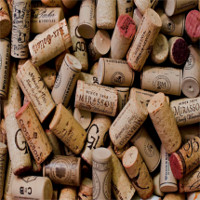Billions of people around the world could die even in the slightest nuclear war, scientists warn.
According to the Daily Star, Paul Doherty , a planetary scientist at the Exploratorium museum, San Francisco (USA), said that computer simulations show that hundreds of nuclear bombs will be detonated if war breaks out between nations. possess nuclear weapons.

Expert Paul Doherty predicts devastating disaster if nuclear war breaks out.
Such a disaster could wipe out a third of the world’s population, with lasting consequences , even for those living in remote areas where the nuclear bomb detonated.
The expert’s comments come amid rising tensions between the US, Russia and North Korea.
Expert Paul Doherty said, if the nuclear war scenario breaks out, billions of people will die from the radiation spread in the explosion, even the number of victims who die from radiation-related diseases will be many more. than the number of people who died from the explosion of a nuclear bomb.
Once absorbed into the body, the radioactive dust strontium-90 released from the nuclear bomb will permanently remain in the victim’s bones.
Once spread to the bone, radioactive decay can disrupt the cell’s DNA, leading to bone cancer and leukemia.

Nuclear war can cost billions of people around the world.
Hundreds of detonated nuclear bombs can even create a radioactive cloud that obscures sunlight, causing global temperatures to drop dramatically. This is the worst scenario for the world’s food supply.
“Even if you didn’t die from a nuclear explosion, you wouldn’t be able to live long in such an environment,” Mr. Doherty said.
“Within just 2 weeks after the nuclear war broke out, 180 million tons of smoke and dust … will cover the globe, turning the blue planet into a black color,” the American expert said. “The light will be reduced to only a few percent of what it is now. Afternoon will then be just like dawn.”

